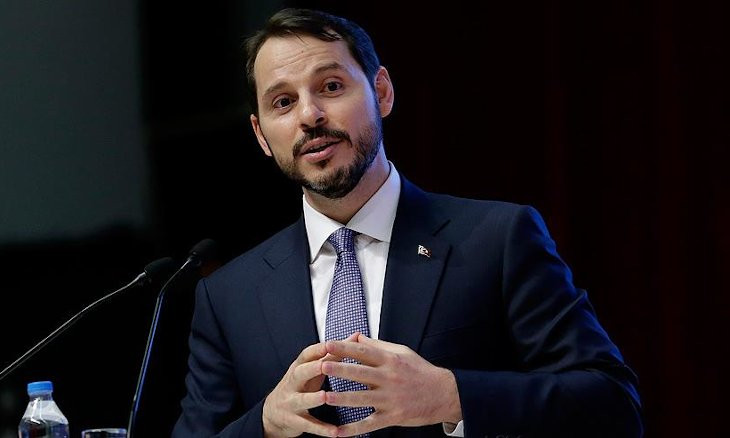Turkish VP brags about solving the crisis that erupted after Albayrak's shock resignation in 27 hours
Turkish Vice President Fuat Oktay has praised the government's delayed response to Berat Albayrak's resignation by boasting about the fact that the crisis was solved in 27 hours. He also linked the "rapid" response to the "success" of the presidential system.
Duvar English
Turkish Vice President Fuat Oktay has bragged about solving the crisis that erupted after Berat Albayrak's shock resignation from his post as the treasury and finance minister within 27 hours.
In a speech in parliament during budget talks on Dec. 15, Oktay responded to the opposition's criticism of the government's silence after Albayrak announced that he resigned from his post on Nov. 8.
"You expected a rapid response because you know that the presidential system is dynamic and powerful enough to solve everything within a day and that's what happened anyway," Oktay said.
Following the resignation of Albayrak, who is President Recep Tayyip Erdoğan's son-in-law, from Instagram, the government didn't comment on the issue for more than a day, prompting confusion among the public.
While all opposition parties stressed that the confusion stems from the presidential system, Oktay on Dec. 15 countered that argument and went on to criticize the parliamentary system.
"In the presidential system, ministers can change. The authority is given by the people to the president, so all decisions were taken within 27 hours. The stability was not harmed in any way and continued with determination," the vice president said.
"When you look at the parliamentary system, there are months-long uncertainties, failures to form governments and problems within the ministries. Now, you wait for everything to be resolved in a day and you're right to do so. The presidential system exists for that and it did what was necessary," Oktay added.
Turkish voters said "yes" to shifting the country's governance system to an executive presidency with a controversial referendum on constitutional amendments on April 16, 2017.
The country shifted to the system officially on July 9, 2018, replacing a 95-year-old parliamentary system.
The system granted sweeping powers to Erdoğan and allowed him to be both the leader of the ruling Justice and Development Party (AKP) and the president at the same time.
Officials of the AKP and its ally Nationalist Movement Party (MHP) often praise the presidential system and link the country's "successes" to it, while the opposition calls for a return to the parliamentary system.

 Every Turkish citizen got poorer by $6,000 during Albayrak's tenure as finance minister, says Future PartyPolitics
Every Turkish citizen got poorer by $6,000 during Albayrak's tenure as finance minister, says Future PartyPolitics Former Finance Minister Albayrak resigns from Turkey Wealth FundPolitics
Former Finance Minister Albayrak resigns from Turkey Wealth FundPolitics Erdoğan breaks silence on son-in-law Albayrak's shock resignation in brief remarksPolitics
Erdoğan breaks silence on son-in-law Albayrak's shock resignation in brief remarksPolitics